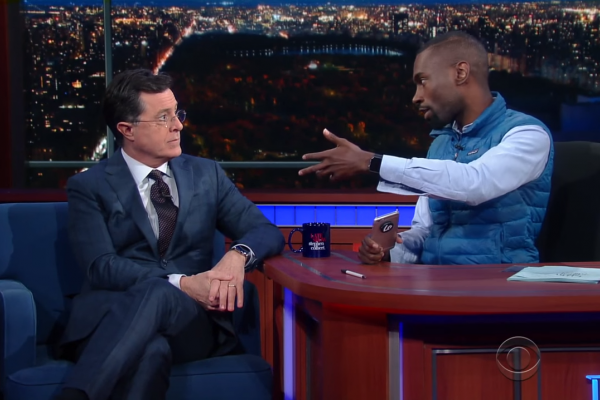Jan 19, 2016
“Baby steps.”
That’s the amount of progress leading Black Lives Matter activist DeRay Mckesson agreed Stephen Colbert made toward overturning his white privilege when the two sat down on Martin Luther King Day to discuss racism.
The interview got personal when Colbert switched seats with DeRay, letting the activist ask the questions. Colbert’s responses are clearly well-meaning, but also genuinely awkward. White privilege is tough for white people, even (perhaps especially) for renowned television hosts.
Read the Full Article

Already a subscriber? Login
